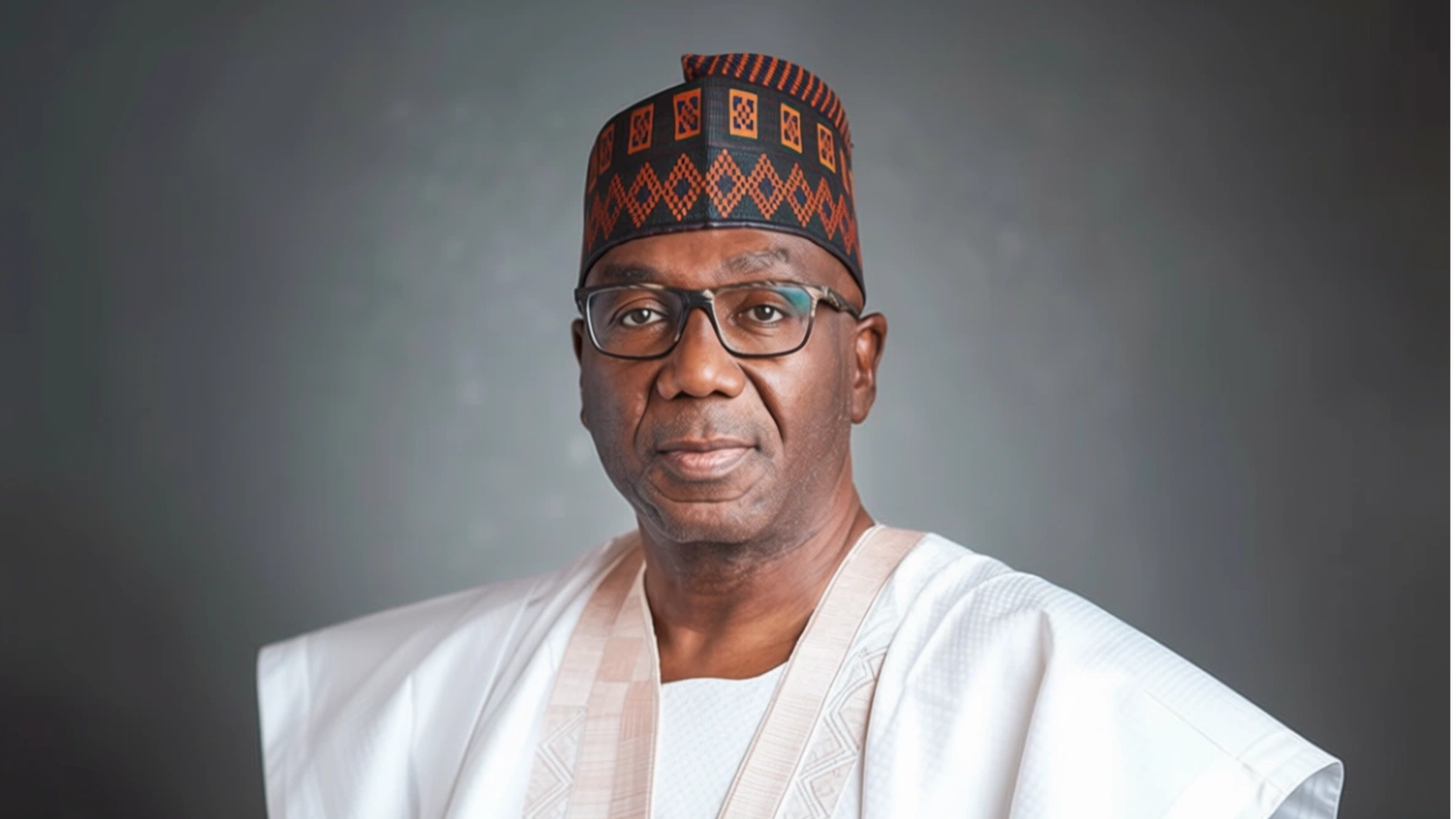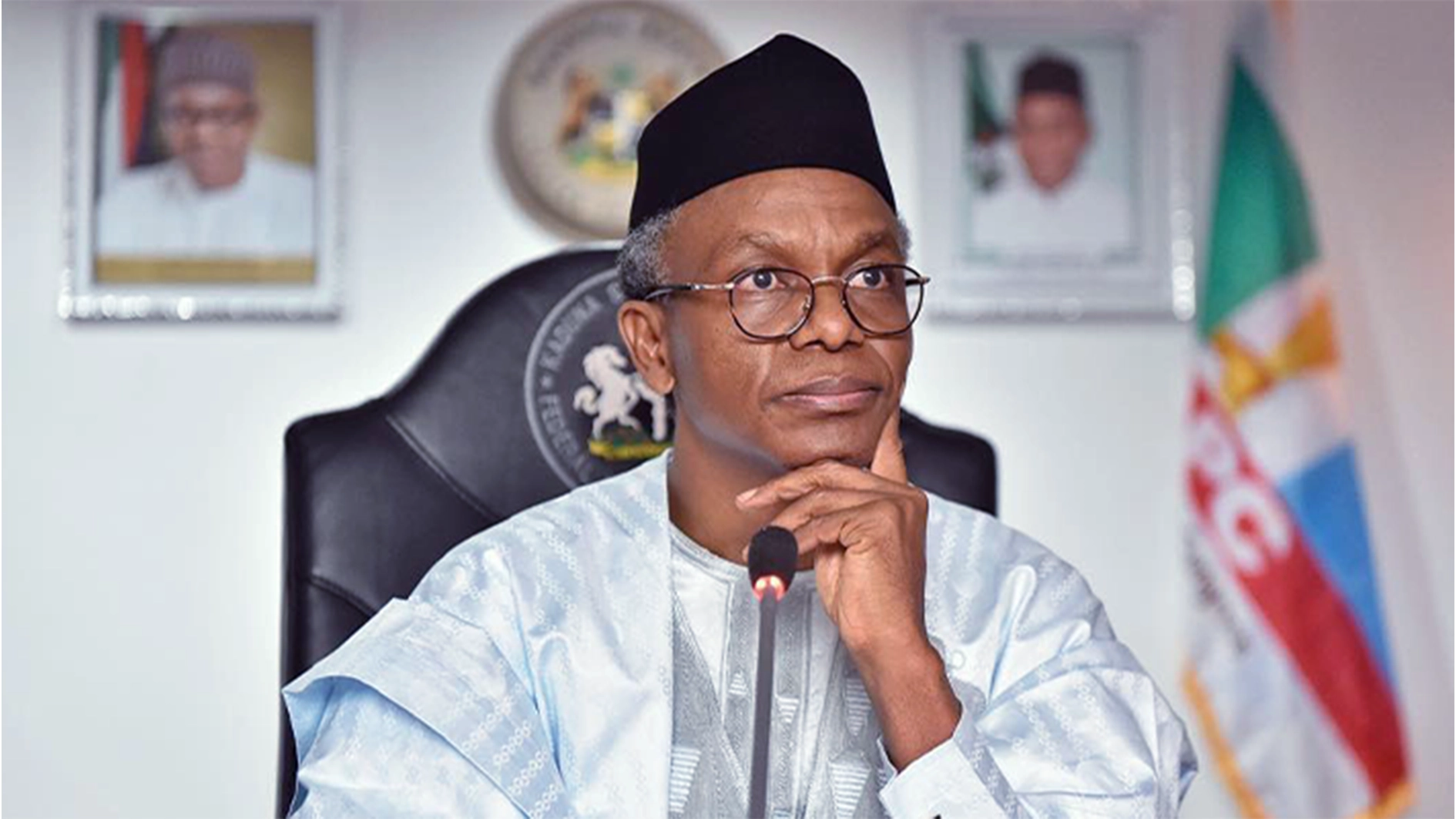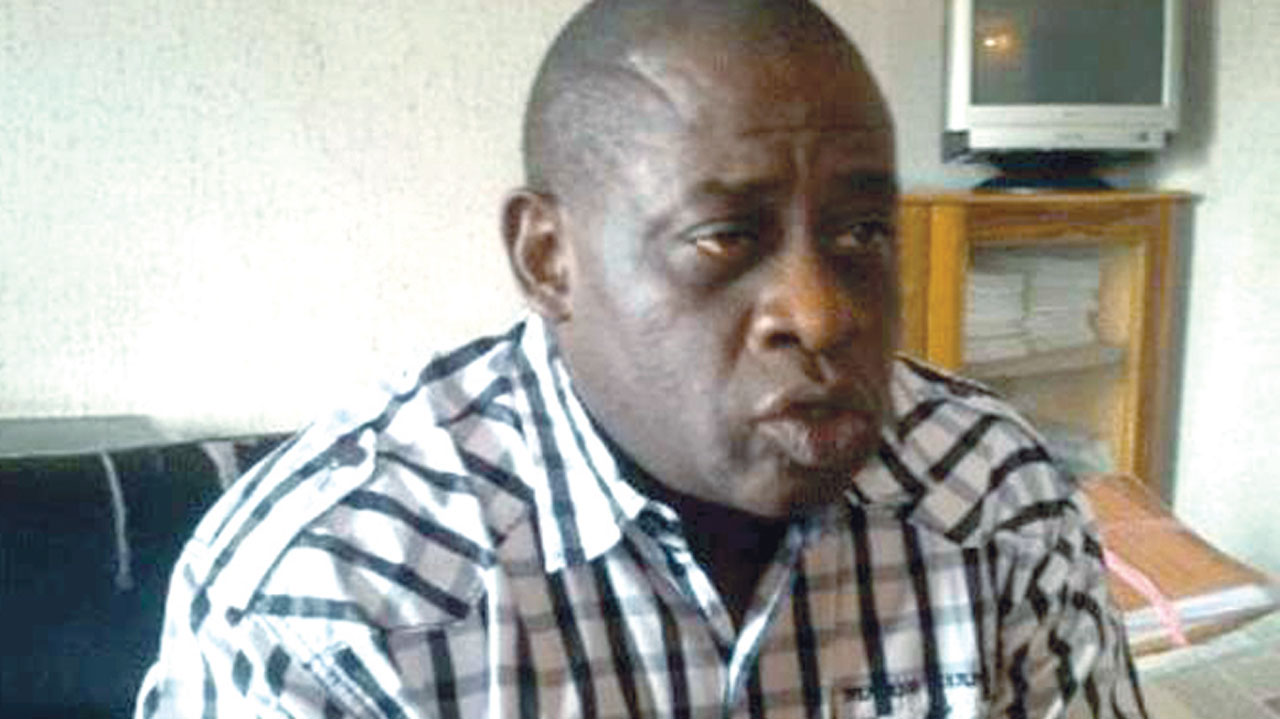Senator Yusuf Datti Baba-Ahmed’s bid to reconcile Labour Party factions has stirred political intrigue, with some viewing it as selfless peacemaking and others as a calculated move ahead of 2027. As tensions simmer between Abure loyalists and the Usman-led camp, Datti’s intervention could reshape both the party’s future and the opposition’s wider coalition strategy, LEO SOBECHI reports.
Senator Yusuf Datti Baba-Ahmed’s recent offer to pacify the warring factions within the embattled Labour Party (LP) has sparked various interpretations and speculations. Some claimed that the former presidential running mate to Mr Peter Obi in the 2023 election was on a mission to protect the party’s platform.
Others argued that Datti was strategically positioning himself for relevance in the unfolding political landscape ahead of the 2027 elections. Meanwhile, party loyalists insist that the Kaduna State-born politician sees the LP as a competitive vehicle to push back against the indecision of coalition partners regarding zoning the presidential ticket to the South of the Niger.
Datti had criticised the coalition politicians for pursuing selfish ambitions, accusing those expected to play elder statesman roles of instead plotting how to exploit the coalition for personal electoral gain.
In contrast to the developments within the African Democratic Congress (ADC) coalition, the former LP vice-presidential candidate noted that the merger of fringe political parties into the All Progressives Congress (APC) in 2013 paid off based on the calculated and deferential approach of former Lagos State governor, Bola Tinubu. He noted that Tinubu respected the principle of power rotation, which underpins Nigeria’s political stability, and chose to shelve his presidential ambition in favour of a northern candidate, General Muhammadu Buhari.
Citing the unstable political climate within the ADC coalition, Datti expressed doubt about its long-term viability. He insisted that even if the alliance materialised, it would not produce a presidency capable of delivering good governance.
However, some members of the coalition, particularly supporters of former Vice President Atiku Abubakar, believed that Datti’s remarks were veiled attacks on Atiku. They alleged that the Kaduna politician felt sidelined by suggestions that, should Obi be offered the ADC presidential ticket, he ought to choose either Mallam Nasir El-Rufai or former Sokoto State governor, Senator Aminu Waziri Tambuwal, as his running mate.
Atiku’s allies described Datti’s attempt to mend the LP’s internal divisions as a calculated move to strengthen the platform in preparation for his presidential bid, should the former Vice President insist on running in 2027.
Similarly, some southern members of the coalition claimed that Datti’s intervention in the LP was designed to increase pressure on Atiku to withdraw from the ADC primary and allow only Southern aspirants to contest amongst themselves.
Senator Datti recalled that during the 2018 special convention and presidential primary of the Peoples Democratic Party (PDP) in Port Harcourt, Southern politicians had stepped aside to allow Atiku, Attahiru Bafarawa, Rabiu Musa Kwankwaso, Tambuwal, Dankwambo and others to compete. He said it was in the spirit of reciprocation that he chose not to contest the 2023 presidential election, in deference to his Southern counterparts.
Commenting on Datti’s offer to reconcile the two Labour Party factions, a prominent leader of the Obidient Movement in the South-East, Dr Ezeh Emmanuel Ezeh, said the former LP vice-presidential candidate was among the new breed of politicians without manifest traits of power greed.
Ezeh said Datti’s plans align with the philosophy of the Obidient Movement, noting that since any coalition without Peter Obi is bound to fail, strengthening the LP ahead of 2027 is a welcome development.
Speaking to journalists in Abuja, Ezeh stated: “It is obvious that the new Nigeria of our dreams can only be possible if old wines are kept away from new bottles. Trust me, 2027 is the year for Nigerians to take their destinies into their own hands. Desperate politicians should not be allowed to continue behaving as if the people do not matter. This old order must give way. That is why I maintain that President Bola Tinubu, Atiku Abubakar and Senator Rabiu Kwankwaso should not contest in the 2027 presidential election.
“It is out of respect that Obi thinks it is not wise for him to be contesting a party’s ticket with his respected elder brother and former principal, Atiku. But the former Vice President seems not to care about a good name or the need to respect covenants. Kwankwaso does not want to wait for 2031.
“Tinubu claims emi lokan. So, these men who accuse themselves do not want to believe that Nigerians exist to enjoy peace and a good life. Atiku believes that northern voters do not want a Yoruba or Igbo leader.
“Kwankwaso insists that Tinubu is serving the Yoruba people alone. But Nigerians are tired of them and want a new Nigeria where the son or daughter of nobody can become somebody without knowing anybody.”
While members of the coalition and the Obidient Movement trade words over Datti’s intervention, some observers, including Suleiman Mohammed from Niger State, alleged that the decision by the former LP vice-presidential candidate to bring together the Julius Abure camp and the Senator Nenadi Usman leadership—after Abure appeared alongside the Federal Capital Territory (FCT) Minister, Nyesom Wike—gave the impression that the reconciliation move was aimed at preventing Wike from securing the LP presidential ticket for himself.
Mohammed disclosed that when it became apparent that former Transportation Minister and Rivers State governor, Chibuike Rotimi Amaechi, could emerge as a presidential or vice-presidential candidate, Wike began exploring options, knowing that the PDP was already beyond his control.
Nonetheless, Senator Datti Baba-Ahmed, while addressing the National Executive Committee (NEC) meeting convened by the Abure group, disclosed that he was prompted by the shifting position of the Independent National Electoral Commission (INEC) regarding the lingering leadership impasse within the LP.
Battle lines
Shortly after the 2023 general elections, the Independent National Electoral Commission disclosed that Julius Abure’s tenure as national chairman of the Labour Party had elapsed, thereby triggering a flurry of activities within the party. The sequence of events was intriguing: INEC’s declaration prompted Abure, in clear defiance of due process, to hastily organise a national convention that was widely criticised for lacking inclusivity.
Ordinarily, the process leading to an elective convention begins at the grassroots level—starting from ward congresses and proceeding through local governments, senatorial zones, and states—culminating in the national convention, which stands as the highest decision-making body of the party.
Acting on INEC’s notice and seeking to address the procedural breach by the Abure camp, Abia State governor, Dr Alex Chioma Otti, and other elected representatives of the party—alongside the 2023 presidential standard bearer, Mr Peter Obi—convened a caucus meeting in Umuahia.
Arising from that special meeting, which the Abure group boycotted, a National Caretaker Committee led by Senator Esther Nenadi Usman was established. Among other tasks, the NCC was mandated to organise an inclusive convention to produce a substantive National Working Committee for the LP.
Offended by the development, Abure went to court and secured a favourable ruling that upheld the validity of the Nnewi convention, which had endorsed his second term in office. However, no sooner had the High Court delivered its judgment than the Nenadi Usman-led NCC approached the Supreme Court.
In its considered judgment, the apex court held that the internal affairs of political parties are non-justiciable. The five-man panel of justices observed that the lower court had erred by interfering in a party leadership dispute, stressing that politicians must learn to vacate office once their tenures expire.
Stunned by the ruling, which many saw as a Janus-faced pronouncement, both sides to the leadership tussle clung to the judgment, each claiming it vindicated their position.
However, prevailing sentiment among LP supporters was that external forces, unsettled by the party’s impressive performance in the 2023 general elections, were meddling in its internal structure.
Conversely, INEC, which should have taken a firm stand as the principal electoral referee, continued to dither and perambulate in fulfilling its duty to enforce its findings as an impartial arbiter. This curious hesitation allowed the LP’s leadership crisis to fester.
Enter Senator Yusuf Datti Baba-Ahmed
Many observers saw the Obi/Datti pairing on the LP presidential ballot as a balanced one. While Peter Obi embodied the image of a gentleman and “good man” politician—likened to a Patriot Missile—Senator Datti offered a loyal but forceful contrast, compared to a Scud Missile.
These two personalities became more evident shortly after the February 25, 2023, presidential election. While Obi preferred to address perceived electoral grievances through due legal process, Datti appeared more inclined toward mass action against what he described as an electoral heist.
It was against the backdrop of his firm stance that the former Kaduna North Senator delivered a pointed comment on national television, which stirred anxiety about the impending transfer of presidential power on May 29, 2023.
Appearing on Channels Television’s Politics Today, Datti stated: “I am on national television, my name Datti Baba-Ahmed, I am addressing President Muhammadu Buhari directly, swear in an improperly elected President and you end this democracy.”
Despite his generally pacifist and personable appearance, the impact of Datti’s remarks that evening reverberated beyond Nigeria’s borders. Not only did they unsettle Nigerians and neighbouring countries, but they also drew concern from the United States and European Union nations.
It was in the wake of that outburst that Datti’s later offer to serve as peacemaker and cohesion builder drew attention and raised eyebrows.There was little doubt that Datti still cherished the LP’s 2023 performance and seemed more committed to rebuilding the platform for another attempt, rather than waiting on the African Democratic Congress, as his principal appeared inclined.
While offering to mediate and reconcile the warring factions, he declared that his efforts were devoid of any personal ambition, interest, or animosity toward any group.
His words: “A lot of water, as they said, has passed under the bridge. I am here as a loyal party member, I am here as a peacemaker, and I am also here to reconcile divergent opinions.
“I am very, very proud to say that I did attend a meeting of a certain attempt for a coalition in Nigeria. Morally speaking, if your neighbourhood invites you to discuss the security, you must attend.
“However, if you attend and they discuss other matters besides that, you are at liberty to restore yourself to your former position. I have attended and I have listened to the coalition attempt, yet I remain a Labour Party member.
“I am not one to sleepwalk into any political arrangement. I call on all well-meaning politicians and members of the Labour Party not to sleepwalk and allow themselves to be led into what is still not comfortable to be with.
“I must say that in the past, a coalition was made and in the past, a sitting Nigerian government was voted out. I note with pleasure that this is what we as the Labour Party did in 2023 and what we are about to do again in 2027.”
He disclosed that his peace efforts had the backing of his principal, Obi, stating: “I am glad also to note that from the comment of my boss, His Excellency, Governor Peter Obi, he remains in the Labour Party. I intend to bring everybody together for us to sit down and again understand each other better and move forward.”
Following Datti’s speech at the Abure faction’s NEC meeting, the prevailing notion among opposition politicians was that the LP faction aligned with Peter Obi was already preparing to exit, signalling the potential collapse of Coalition efforts.
Even Datti hinted at this. He noted: “The Labour Party is not a party to walk away from. The successes, the history that the Labour Party of Nigeria has recorded are unique and unprecedented.
We presented clear records and evidence of 10 million votes scored in the last election and thereafter reduced to 6.1 million votes. And, for that, I still maintain, the Labour Party is not a party to walk away from.”
Alluding to what he witnessed at the ADC’s unveiling as a coalition platform, the former lawmaker remarked: “The act of state capture is a more onerous task than causing disunity and disaffection among and within political parties.”
He added: “After the tragedy of 2023, Nigerians were promised governance, yet we continue to experience unrelenting, underhand politics going on within the country, within the regions, between the regions and within the parties.” Does Datti’s manoeuvre mark the end of the coalition? Only time will tell.






